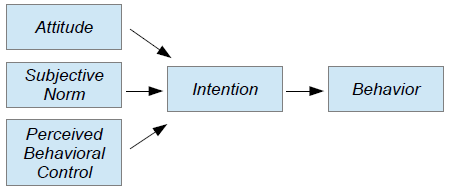Program Design
Theories of Behavior Change
This section may seem very theoretical to be directly useful, but it is actually more relevant and helpful than you may think. Grounding your program design in a theory of behavior change will provide a rationale for why and how a given program will achieve, or show progress toward, your identified objective.
A theory of behavior change can help you to identify the point at which an intervention is most appropriate or is likely to have the greatest impact. Behavior change can take a long time, and can be difficult to demonstrate, especially for small programs or in the short term. Theories of behavior change can help identify intermediate steps or milestones on the path to behavior change and can help fine-tune program objectives.
Some prominent theories of behavior change are presented here, but there are other prominent theories that may be more relevant to your alcohol-related issue. See the Resources Sidebar for links to additional sources of information.
The diagram below shows the Theory of Reasoned Action and the Theory of Planned Behavior. The Theory of Reasoned Action suggests that changing attitudes, beliefs, or motivations leads to changes in intention, and ultimately to a change in behavior. A program based in this theory could, for example, focus on changing beliefs about drinking as a necessary preliminary step toward changing behavior.
The Theory of Planned Behavior, shown below, builds on the model of the Theory of Reasoned Action by adding an element of perceived control over one's own behavior, suggesting that a person may work harder to change a behavior if they believe that they have a high degree of control over it.

Light blue area shows the Theory of Reasoned Action; full figure shows the Theory of Planned Behavior
The underlying theory behind the Stages of Change, or Trans-theoretical Model (TTM), shown below, is that behavior change is a dynamic process that individuals may cycle through, entering, exiting, and re-entering the stage-of-change process in order to establish and maintain a desired behavioral outcome. Because different processes are at work at different stages of change, individuals may benefit most from different approaches, types of information, and interventions specifically targeted for that stage of change.
